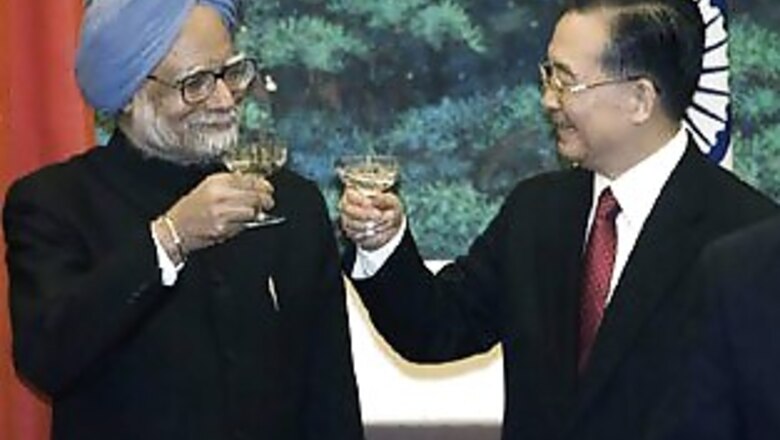
views
Tawang: The rutted mountain road to Tawang in remote northeast, quiet and empty for years, is abuzz these days with heavy construction activity. Bulldozers are slowly turning the rickety road to the Chinese border into a double-lane highway.
The construction is part of India's quiet military buildup in an eastern Himalayan region that is at the centre of a long-festering border dispute with China.
Military bases dot the countryside. At one camp, soldiers clean rows of field guns behind concertina wire fences. Army convoys hurtle along intermittently.
With ties between the two countries strained by a flare-up over their disputed boundary, India is fortifying parts of its northeast, building new roads and bridges, deploying tens of thousands more soldiers and boosting air defences.
"We are well prepared for any kind of threat," said Rajesh Kalia, an army colonel stationed close to Tawang which China overran during a brief but bloody war in 1962 before withdrawing.
But a 20-hour, 500-km (300-mile) rattling drive up to Tawang from the region's biggest city Guwahati provides proof of India's neglect of one of its most strategic border states. It still has no airport, power supply is erratic and telecommunications unreliable.
The vital road, spiralling past folds of craggy mountains and streams, often crumbles into a dirt track, in sharp contrast to the modern infrastructure on the other side of the border.
Many say China's five highways running to the border, backed by railway and modern telecommunications networks, have reinforced China's claim to the region.
"There is no comparison when it comes to border infrastructure. We are way behind," said Mira Sinha Bhattacharjea, former head of the Institute of Chinese Studies.
New Delhi's sense of insecurity appears rooted in an increasingly assertive China, accentuated by recent Indian media reports of repeated Chinese border incursions.
China lays claim to 90,000 sq km of land in India's northeast and cites the region's cultural affinity with Tibet as evidence the area forms part of what it calls "southern" Tibet. India says China occupies 38,000 sq km (15,000 sq miles) of territory in Aksai Chin plateau in the western Himalayas.
PAGE_BREAK
The neighbours which compete for global resources and influence, have also exchanged diplomatic barbs at multilateral forums and sparred over visa policies for their citizens in an escalating row that many fear could spiral out of control.
Beijing has also stepped up its opposition to the Dalai Lama, the exiled Tibetan leader, who has lived in India since fleeing Tibet after a failed uprising against Chinese rule in 1959.
Taking no chances
In the decades after the 1962 war, relations thawed and trade grew exponentially to reach more than $50 billion last year.
But New Delhi sees China as backing rival Pakistan. Beijing, on its part, is suspicious of New Delhi's growing ties with the United States, the Dalai Lama's activities in India and sees the Tawang monastery as a rallying point for the Tibetan struggle.
"In Tibet the Buddhist monasteries are the closest thing to an alternative organising force to the Communist party," writes Bill Emmott in his book Rivals: How the Power Struggle Between China, India and Japan Will Shape Our Next Decade.
Most agree there is little danger of a conventional war breaking out, but chances of border skirmishes are a real risk that could make an early solution of border disputes difficult.
At the border, mountains rise to almost 16,000 feet before stretching out into a small flatland. On it stand two pagoda-like outposts for meetings of military commanders.
Close by, Indian soldiers huddle on a huge rock, watching over a shiny stretch of empty road on the other side of the border running past a lone blue-roofed Chinese outpost.
Kalia says there is "absolute peace" on the border.
Many Indian analysts say the calm is deceptive. "The border is very hot right now," said Bhaskar Roy, a strategic affairs writer at the Chennai Centre for China Studies. "Things need to be cooled at a political level."














Comments
0 comment